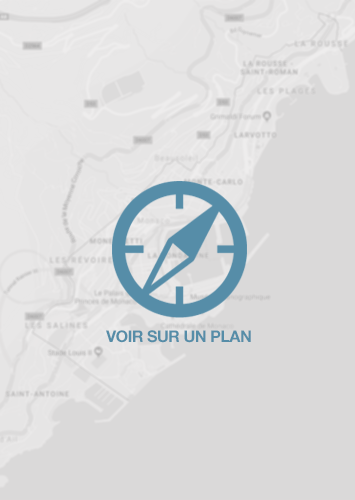- Homepage
- Institutions
- Assemblies and constitutional bodies
- The Commune
The Commune
Role
The Commune
The Principality forms a single commune (municipal district/authority), and its geographical scope therefore extends throughout Monegasque territory.
As a decentralised public authority, the Commune of Monaco is responsible for:
- Managing local authority property
- Organising and structuring local public services
- Organising municipal events and activities in the town
- Naming streets and roads
- Creating, landscaping or eliminating green spaces
- The cemetery
- Assistance for the elderly
- the nursery for childcare
The Council of the Commune
It must be consulted by the Minister of State on the following matters:
- Urban planning initiatives
- Major public works projects
- Construction of buildings by the State or by individuals (large developments involving exemptions, particularly in Monaco-Ville)
- Initiatives to create or eliminate green spaces
- Projects that might change the appearance of the town or affect traffic routes.
The Council of the Commune can express wishes regarding any matter of relevance to the Commune.
The Mayor
As a representative for the Government he is in charge of:
- Ensuring that laws and regulations are implemented and policing of the municipality (particularly with regard to urban safety and traffic)
- Expressing an opinion on applications for naturalisation or recovery of Monegasque nationality
- Performing, under the supervision of the Public Prosecutor, the duties of registrar (and in this regard, holds the registers) and judicial police officer (with powers to collaborate in the investigation of crimes, offences and misdemeanours, the drafting of reports, and the reception of complaints and reports)
Organisation and operation
The Council of the Commune
The Commune of Monaco is run by an elected assembly subject to State oversight.
The Council of the Commune has fifteen members, elected for four years by direct universal suffrage and by a double-ballot majority list poll voted by all adult citizens of Monegasque nationality of both genders.
It meets every three months for ordinary sessions (for fifteen days at most) and may hold extraordinary sessions for specific reasons, upon request from the Mayor or from at least one third of the councillors in office, authorized by the Minister of State.
The Council of the Commune, chaired by the Mayor or a Deputy, deliberates on matters relating to the Commune, and also votes on its budget.
The Municipality
The Commune is administered by a municipality composed of a Mayor and Deputy Mayors appointed by the Council of the Commune from among its members. The Mayor is the State official who oversees the implementation of laws and regulations. The Mayor is the agent and representative of the Commune in managing matters in which it is involved (implementing resolutions of the Council of the Commune, administering property belonging to the Commune, and running municipal departments) and in this respect holds regulatory power which is exercised in the form of Municipal Orders. The Mayor represents the Commune before the Courts.
Civil servants and municipal employees and representatives (around six hundred and fifty people) are under the Mayor's authority.
The various municipal departments manage areas over which jurisdiction falls to the Commune by virtue of the law, in accordance with resolutions passed by the Council of the Commune.
The Secretary-General to the Mayor is M. Romain DRUENNE.
To know the complete composition of the Council of the Commune, click here .
Background
The Commune, the descendant of the popular community that settled on the Rock in 1215, is the oldest institution in Monaco.
Dating from the occupation of the Rock of Monaco by a colony from the Republic of Genoa in 1215, the Commune (or "universitas" of inhabitants) originally, along with the "castellans" appointed by the Republic, exercised the powers that the latter had assumed over the country.
From the early 13th century, the community was represented by heads of households who met regularly in an early form of parliament to debate on their collective interests. These representatives negotiated with the neighbouring communities.
Later, the Commune shared its rights with the nobility whose representatives (castellans or podestats) attended its assemblies. As long as it deliberated in the presence of the representative of those holding power, and respected the latter's authority, the parliament was free to decide on all matters concerning the community.
The community continued to manage its property, to maintain the church, cure, and hospital and to express wishes about issues affecting general policy in the Principality.
It delegated the management of its affairs on a permanent basis, between meetings of the general parliament, to "syndics" (or consuls), and then to officials with special areas of responsibility.
This situation lasted for centuries without giving rise to any serious difficulties.
The Commune always respected the princes' authority and the latter always paid attention to their aspirations (sometimes with decisive consequences for the country's future).
This reminder of the distant past explains why in the early twentieth century the Monegasques' political claims were rather aimed at obtaining greater autonomy for the Commune than a constitutional regime such as a parliament.
The 1911 Constitution thus created a National Council with legislative and budgetary jurisdiction, but did not revoke the institution of the Commune. And while three communes (corresponding to the three neighbourhoods of Monaco-Ville, La Condamine and Monte-Carlo) were then substituted for the single commune, this reform, rather irrational due to the restricted size of the country, had to be abandoned a few years later at the request of the population. In 1917, the single commune was restored and a law, enacted in 1920 and recast in 1974, governs its organisation and operation.
Founding legislation
Act no. 959 of 24 July 1974 concerning municipal organisation






